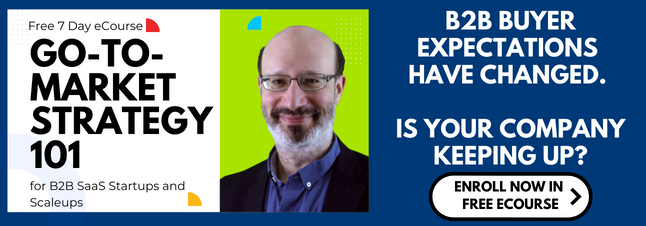Approached correctly, your content marketing strategy can make a major impact on your overall go-to-market playbook. Why?
The way that people research and make purchase decisions has changed rather dramatically.
For a mid-sized or enterprise content marketing team that's truly multi-disciplinary (strategist, copywriters, designers, developers, video producers, audio engineers, and events managers, for example), your content strategy needs and justifies a completely different level of buyer insight investment than a small company with a one or two-person marketing team -- or that outsources to a content marketing agency with a modest budget.
Segmentation and Personalization Strategy
For the resource-constrained company that needs to get found by the right people, in the right places, at the right time, and in the right context, it's still essential to segment content assets by personas and buyer's journey stage.
Although I'd lean way more heavily into the labels and significance of Awareness, Consideration, and Decision stages rather than the TOFU/MOFU/BOFU acronyms.

Rethinking the Ideal Sales Hire to Support Your Content Marketing Strategy
The bigger problem, especially in smaller companies, is building a modern sales team that can effectively and appropriately engage with leads that come in through various content campaigns.
This often requires a mindset shift for sales professionals to be repositioned as consultants and subject matter experts. Otherwise, the tone-deaf sales professional that refuses to contextualize based on stage just completely repulses prospects.
Best Practices Checklist
Every content marketing asset really should be planned around
- who this reader/listener/viewer/attendee is (persona)
- where this person is in their research process (journey stage, lifecycle stage, or whatever label gets the best organizational alignment/buy-in)
- a conversion goal that's relevant to who this person is and where this person is in their process
How's your content marketing strategy? Is it truly ready for prime time? What gaps exist? How will you address those gaps? Let me know in the comments section below.
And if you're ready to level up on your content strategy so that it becomes a major revenue growth accelerator, enroll now in our free 7-day eCourse: Go-to-Market Strategy 101 for B2B SaaS Startups and Scaleups.


